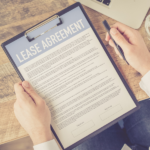The events of last year up until this point have hit many sectors of the economy hard, including commercial real estate. While some kinds of properties were affected more severely than others, it’s safe to say that the industry as a whole took a major turn for the worse. That’s not to say that recovery can and won’t happen. We’re already beginning to see major progress as the US begins to open back up. But regardless, the face of the commercial real estate market has been altered in a big way.
Now that we’ve seen first-hand that quite literally anything can happen, no industry can claim absolute confidence in its permanence. However, that’s not to say that the commercial real estate business can’t adapt to shifts in the market. It’s on current and future investors to meet new demands in order to stay in the green.
All in all, commercial real estate isn’t going anywhere. As the world returns to a new normal, the future of commercial real estate will look different. This shouldn’t stop potential investors and tenants from pursuing commercial real estate properties, because on the bright side, we’re all in a similar boat — feeling out the new market and learning as we go.
Revenue took a turn for the worse
The most glaring impact of COVID-19 on the commercial real estate landscape is that the majority of businesses saw a decrease in revenue. According to a Forbes survey, almost 3 out of 5 respondents suffered a 59% loss of revenue since the beginning of the pandemic.
However, this downturn won’t be as severe as the one that occurred in the wake of the 2008 recession. Of the same survey respondents, 80% indicated that they expected these losses to only last in the short-term. These predictions are good news for every player in the commercial real estate market.
Flexible, short-term lease options are in demand
In a relatively uncertain market, long-term leases are no longer a viable option for many tenants. Flexible leases for shorter periods better suit the current state of the market. This flexibility gives business owners peace of mind should their needs or budget change.
Co-working spaces might be popular choices for this very reason. These kinds of commercial spaces provide most of the benefits of in-person office space while allowing business owners to avoid getting tied up in long-term lease agreements. The future of commercial real estate will likely include expanded lease options, more ways to protect both landlords and tenants, and new clauses that prepare both parties for the worst scenarios.
Warehouse spaces are on the rise
While many brick and mortar retail locations were forced to close up shop during COVID-19, clothing was still in demand. Consequently, online shopping saw a massive spike. As a result, warehouse spaces weren’t hit as hard as other categories of commercial real estate. Even though it’s inevitable that many brick-and-mortar locations will reopen and some new ones will join the market, tenants of these spaces and potential investors should take the stability of online retail to heart.
It’s a shift that we’ve been inching towards, but that COVID-19 rapidly accelerated. Many retail shop owners are expanding their offerings more rapidly than ever to get in on the e-commerce boom, and it’s unlikely that this shift will be reversed.
Collaboration between landlords and tenants is a priority
During COVID-19, landlords struggled to find tenants to fill their spaces and tenants struggled to make payments. As a result, many terminated their lease agreements. In the future, the collaboration will be the best route to prevent such calamity in the market from happening again. A culture of discussion and openness between landlord and tenant is the best route for both parties. This will help the two move forward and reach agreements that work well on either side.
Potential tenants and landlords may wish to bypass brokers in order to discuss terms on a 1:1 basis and prevent a middleman from interfering with their interests. Plus, the absence of a broker saves both camps money. This benefits individuals who are in need of financial recovery in the wake of COVID-19.
Takeaway
In spite of the impact of COVID-19, commercial real estate is on track to make a comeback. There’s still no exact picture of what that comeback will look like. Even so, we are beginning to get a clearer idea of the post-COVID-19 landscape.
Thanks to our understanding of the shifts that occurred during the pandemic, we can predict which kinds of commercial real estate will excel in the future and which will continue to experience hardships. Overall, the market is already on the mend. We can expect to see greater and greater improvements over the course of 2021 and beyond.






